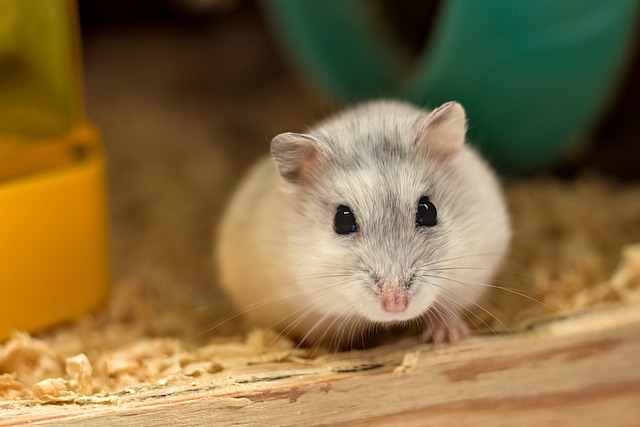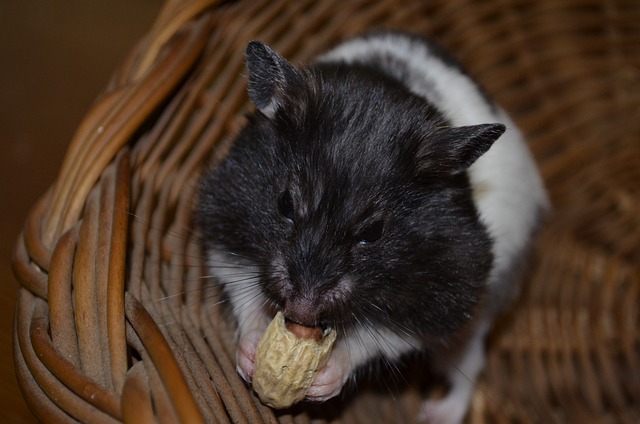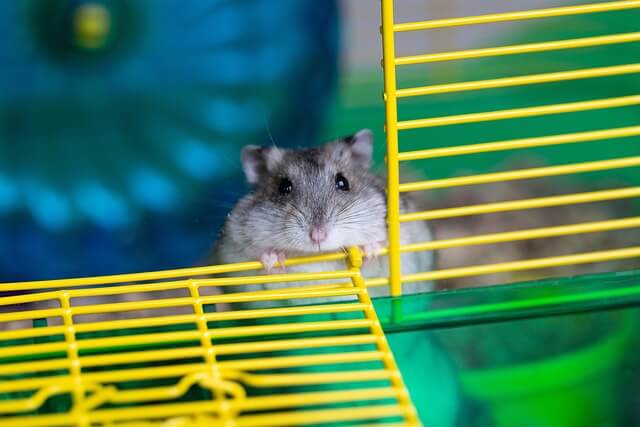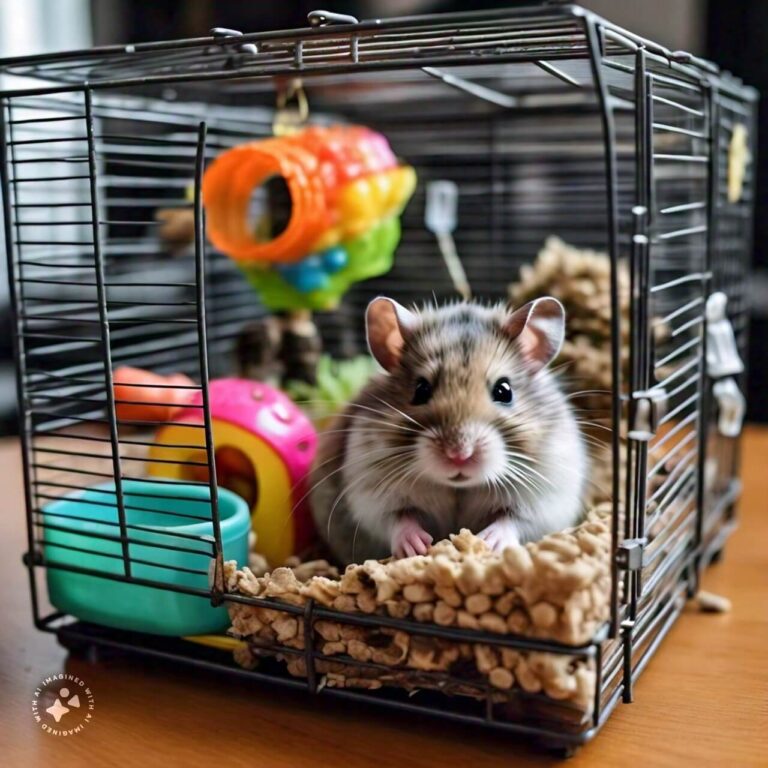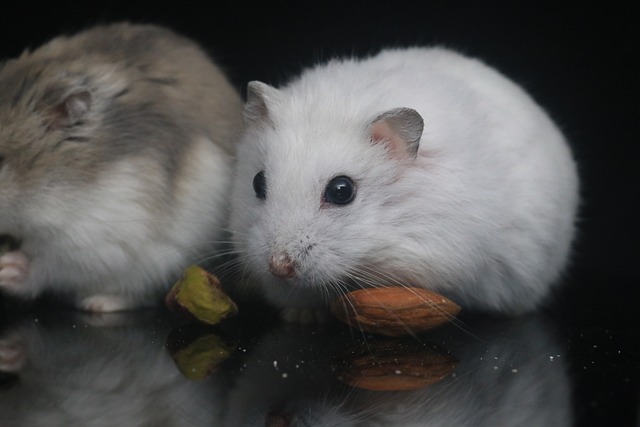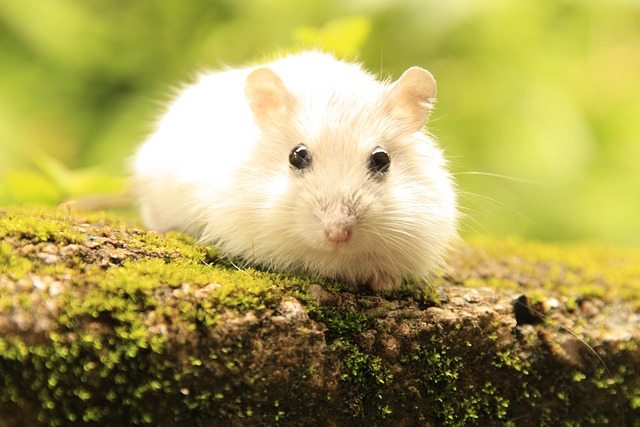Can Syrian Hamsters Live Longer Than 2 Years – Hamsters.pk
Understanding the Average Lifespan of Syrian Hamsters
Syrian hamsters, also known as golden hamsters, are popular pets known for their cute appearance and friendly nature. As a responsible pet owner, it’s essential to understand the average lifespan of these furry companions to ensure proper care and planning. In this article, we’ll explore the typical lifespan of Syrian hamsters and the factors that influence their longevity.
Average Lifespan of Syrian Hamsters
On average, Syrian hamsters live between 2 to 3 years. However, with proper care, a healthy diet, and a suitable living environment, some Syrian hamsters can live up to 4 years or even longer in rare cases.
Factors Affecting a Syrian Hamster’s Lifespan
Several factors can impact the lifespan of a Syrian hamster, including:
- Genetics: Some hamsters may have a genetic predisposition to certain health issues, which can affect their overall lifespan.
- Diet: Providing a balanced and nutritious diet is crucial for maintaining your hamster’s health and extending its lifespan. Avoid feeding your hamster high-fat or sugary treats in excess.
- Living Environment: A clean, spacious cage with proper ventilation, comfortable bedding, and appropriate toys can contribute to a hamster’s overall well-being and longevity.
- Exercise: Syrian hamsters require regular exercise to stay healthy. Providing an exercise wheel and allowing them to explore in a safe, supervised area can help keep them active and maintain their physical health.
- Veterinary Care: Regular check-ups with a veterinarian specializing in small animals can help detect and treat any potential health issues early on, increasing the chances of a longer lifespan.
Signs of Aging in Syrian Hamsters
As Syrian hamsters age, they may exhibit certain signs, such as:
- Reduced Activity: Older hamsters may become less active and spend more time sleeping.
- Weight Changes: Senior hamsters may experience weight loss or gain due to changes in metabolism or appetite.
- Skin and Coat Changes: The coat may become thinner, and the skin may appear less elastic in aging hamsters.
- Eye and Ear Issues: Older hamsters may develop cataracts or hearing loss.
Providing Care for Senior Syrian Hamsters
To ensure your Syrian hamster enjoys a comfortable life in its senior years, consider the following:
- Adjust the Diet: Consult with a veterinarian to determine if any dietary changes are necessary to accommodate your hamster’s age-related needs.
- Modify the Cage: Make sure the cage is easily accessible and provides comfortable spaces for your hamster to rest and sleep.
- Gentle Handling: Be extra gentle when handling an older hamster, as they may be more fragile and prone to stress.
- Regular Veterinary Check-ups: More frequent visits to the veterinarian may be necessary to monitor your hamster’s health and address any age-related concerns.
By understanding the average lifespan of Syrian hamsters and the factors that influence their longevity, you can provide the best possible care for your furry friend throughout its life. With proper attention, love, and care, you can help your Syrian hamster live a happy and healthy life, potentially extending its lifespan beyond the average 2 to 3 years.

Factors That Influence a Syrian Hamster’s Longevity
Syrian hamsters, also known as golden hamsters, are popular small pets that bring joy and companionship to many households. As a responsible pet owner, it’s natural to want your furry friend to live a long and healthy life. In this article, we’ll explore the various factors that can influence a Syrian hamster’s longevity, helping you provide the best possible care for your beloved pet.
Genetics and Breeding
One of the most significant factors affecting a Syrian hamster’s lifespan is its genetics. Some hamsters may be predisposed to certain health issues due to their genetic makeup, which can impact their overall longevity. Additionally, responsible breeding practices play a crucial role in producing healthy hamsters with a better chance of living longer.
Diet and Nutrition
Providing a balanced and nutritious diet is essential for maintaining your Syrian hamster’s health and promoting a longer lifespan. A proper diet should consist of:
- High-quality hamster food: Look for commercially prepared hamster food that contains a balanced mix of proteins, carbohydrates, and essential vitamins and minerals.
- Fresh vegetables and fruits: Offer small amounts of fresh, hamster-safe vegetables and fruits as treats to provide additional nutrients and variety in their diet.
- Limited treats: Avoid overfeeding your hamster with high-fat or sugary treats, as excessive consumption can lead to obesity and other health issues.
Living Environment
Creating a safe and comfortable living space for your Syrian hamster is crucial for their well-being and longevity. Consider the following factors:
- Cage size: Provide a spacious cage that allows your hamster to move around freely, exercise, and engage in natural behaviors.
- Proper bedding: Use safe and absorbent bedding materials to keep your hamster’s cage clean and dry, reducing the risk of respiratory issues and infections.
- Temperature and humidity: Maintain a stable temperature between 65°F and 75°F (18°C and 24°C) and avoid excessive humidity, as extreme conditions can cause stress and health problems.
- Enrichment: Include plenty of toys, tunnels, and hiding spaces in your hamster’s cage to keep them mentally stimulated and prevent boredom.
Exercise and Physical Activity
Regular exercise is vital for maintaining your Syrian hamster’s physical health and promoting a longer lifespan. Provide your hamster with:
- Exercise wheel: A appropriately sized, solid-surface exercise wheel allows your hamster to run and stay active within their cage.
- Playtime outside the cage: Allow your hamster to explore and exercise in a safe, supervised area outside their cage for additional physical activity.
Veterinary Care and Health Monitoring
Regular veterinary check-ups and prompt attention to any health concerns can significantly influence your Syrian hamster’s longevity. Schedule routine visits with a veterinarian specializing in small animals to:
- Assess your hamster’s overall health and catch any potential issues early on.
- Receive guidance on preventive care, such as dental check-ups and parasite control.
- Address any age-related concerns or illnesses that may arise as your hamster grows older.
Stress Management
Minimizing stress is essential for promoting your Syrian hamster’s longevity. Some ways to reduce stress include:
- Providing a secure and comfortable living environment.
- Avoiding sudden changes in their routine or living space.
- Handling your hamster gently and allowing them to approach you on their own terms.
- Keeping noise levels low and minimizing disturbances around their cage.
By understanding and addressing these key factors that influence a Syrian hamster’s longevity, you can create a nurturing environment that supports your pet’s health and well-being. With proper care, nutrition, and attention to their needs, you can help your Syrian hamster live a long, happy, and fulfilling life by your side.
Tips for Extending Your Syrian Hamster’s Life
As a devoted pet owner, you want to ensure that your Syrian hamster lives a long, healthy, and happy life. While the average lifespan of a Syrian hamster is between 2 to 3 years, there are several steps you can take to potentially extend their life and improve their overall quality of life. In this article, we’ll provide you with practical tips to help your furry friend thrive.
Provide a Balanced and Nutritious Diet
One of the most crucial factors in extending your Syrian hamster’s life is providing a balanced and nutritious diet. Follow these guidelines:
- High-quality hamster food: Choose a commercially prepared hamster food that contains a balanced mix of proteins, carbohydrates, and essential vitamins and minerals.
- Fresh vegetables and fruits: Offer small amounts of fresh, hamster-safe vegetables and fruits as treats to supplement their diet with additional nutrients.
- Avoid excessive treats: Limit the number of high-fat or sugary treats, as they can lead to obesity and other health issues.
- Fresh water: Ensure that your hamster always has access to clean, fresh water in a bottle or bowl.
Create a Safe and Comfortable Living Environment
Providing a safe and comfortable living space is essential for your Syrian hamster’s well-being and longevity. Consider the following:
- Spacious cage: Choose a cage that is at least 24 inches by 12 inches and 12 inches tall, with plenty of room for your hamster to move around, exercise, and explore.
- Appropriate bedding: Use safe, absorbent bedding materials like paper-based bedding or aspen wood shavings to keep your hamster’s cage clean and dry.
- Proper ventilation: Ensure that your hamster’s cage has adequate ventilation to prevent the buildup of ammonia and other harmful gases.
- Temperature control: Keep your hamster’s cage in a room with a stable temperature between 65°F and 75°F (18°C and 24°C), away from direct sunlight and drafts.
Encourage Regular Exercise
Regular exercise is crucial for maintaining your Syrian hamster’s physical health and promoting longevity. Implement the following:
- Exercise wheel: Provide a solid-surface exercise wheel that is appropriately sized for your hamster to run on.
- Playtime outside the cage: Allow your hamster to explore and exercise in a safe, supervised area outside their cage for additional physical activity.
- Toys and tunnels: Include a variety of toys, tunnels, and climbing structures in your hamster’s cage to encourage physical activity and mental stimulation.
Schedule Regular Veterinary Check-ups
Regular veterinary check-ups are essential for monitoring your Syrian hamster’s health and catching any potential issues early on. Follow these guidelines:
- Annual check-ups: Schedule annual visits with a veterinarian specializing in small animals to assess your hamster’s overall health.
- Dental care: Have your veterinarian check your hamster’s teeth for any signs of overgrowth or dental issues, which can impact their ability to eat and maintain a healthy weight.
- Prompt attention to health concerns: If you notice any changes in your hamster’s behavior, appetite, or appearance, consult with your veterinarian promptly.
Minimize Stress
Minimizing stress is key to promoting your Syrian hamster’s longevity and overall well-being. Follow these tips:
- Gentle handling: Handle your hamster gently and allow them to approach you on their own terms to build trust and reduce stress.
- Consistent routine: Maintain a consistent routine for feeding, playtime, and cage cleaning to provide a sense of security for your hamster.
- Quiet environment: Keep your hamster’s cage in a quiet area of your home, away from loud noises and disturbances that can cause stress.
By implementing these tips and providing your Syrian hamster with a loving, attentive home, you can help them live a longer, healthier, and more fulfilling life. Remember, every small step you take to improve your hamster’s care can make a significant difference in their longevity and happiness.
Real-Life Examples of Syrian Hamsters Living Beyond 2 Years
While the average lifespan of a Syrian hamster is between 2 to 3 years, there have been several remarkable cases of these furry companions living well beyond this expected range. In this article, we’ll explore real-life examples of Syrian hamsters who have defied the odds and enjoyed longer, healthier lives, showcasing the potential for extended longevity with proper care and attention.
Poppy: The 4-Year-Old Syrian Hamster
One extraordinary example of a Syrian hamster living beyond the average lifespan is Poppy, who was owned by a dedicated hamster enthusiast named Sarah. Through meticulous care, a balanced diet, and regular veterinary check-ups, Poppy thrived and reached the impressive age of 4 years old.
Sarah attributes Poppy’s longevity to several key factors:
- High-quality diet: Poppy was fed a balanced mix of commercial hamster food, fresh vegetables, and occasional treats in moderation.
- Spacious and enriching living environment: Poppy’s cage was large, well-ventilated, and filled with various toys, tunnels, and hiding spots to keep her physically and mentally stimulated.
- Regular exercise: Poppy had access to a properly sized exercise wheel and enjoyed supervised playtime outside her cage, keeping her active and healthy.
Max: The Syrian Hamster Who Lived to 3.5 Years
Another notable example is Max, a Syrian hamster who was cherished by his owner, Emily, for an impressive 3.5 years. Emily’s dedication to providing Max with a healthy lifestyle played a significant role in his extended lifespan.
Some of the factors that contributed to Max’s longevity include:
- Regular veterinary care: Emily scheduled annual check-ups for Max and promptly addressed any health concerns that arose.
- Stress management: Max’s cage was kept in a quiet, peaceful area of the home, and Emily handled him gently, allowing him to approach her on his own terms.
- Clean living environment: Emily maintained a clean and hygienic cage for Max, using safe bedding materials and spot-cleaning daily to prevent the buildup of harmful bacteria.
Luna: The Syrian Hamster Who Reached 3 Years and 2 Months
Luna, a beloved Syrian hamster, captured the hearts of her owners, Michael and Lisa, as she thrived under their care for an amazing 3 years and 2 months. Luna’s story is a testament to the power of a nurturing home and attentive care.
Michael and Lisa focused on several key aspects to ensure Luna’s longevity:
- Nutritious diet: Luna received a well-balanced diet consisting of high-quality hamster food, fresh greens, and limited treats.
- Regular exercise and enrichment: Luna had ample opportunities for exercise through her wheel and playtime sessions, keeping her physically fit and mentally engaged.
- Close monitoring of health: Michael and Lisa were vigilant in observing Luna’s behavior, appetite, and appearance, quickly addressing any potential health concerns with their veterinarian.
These real-life examples demonstrate that with proper care, nutrition, and attention to their specific needs, Syrian hamsters have the potential to live well beyond the average 2 to 3-year lifespan. By learning from the experiences of dedicated owners like Sarah, Emily, Michael, and Lisa, you can implement similar practices to give your Syrian hamster the best chance at a long, healthy, and happy life.
Remember, every hamster is unique, and individual factors such as genetics and overall health can also play a role in their longevity. However, by providing a loving, nurturing environment and staying attentive to your hamster’s needs, you can create the foundation for a long and fulfilling life together.




